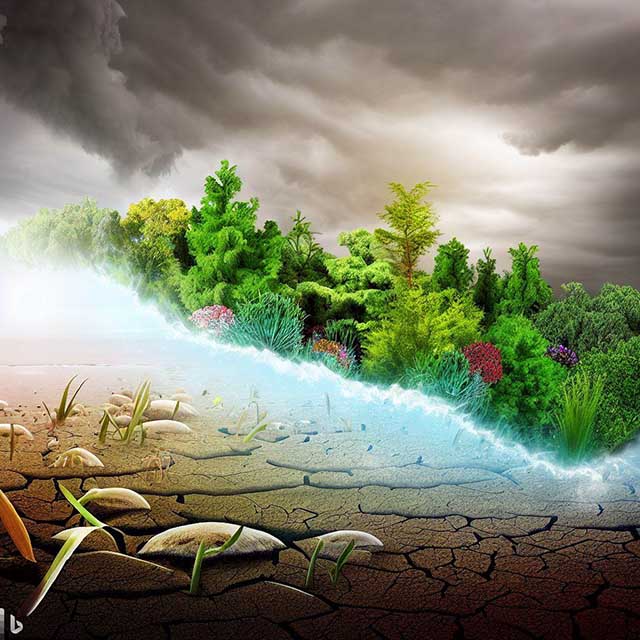Biodiversity, also known as biological diversity, refers to the variety of different life forms on Earth, including plants, animals, and microorganisms. It includes diversity within species, between species, and between ecosystems. Biodiversity is an important aspect of the natural world because it helps to support the health and stability of ecosystems, which in turn supports the survival of all living things on the planet.
Why is biodiversity important?
 But why is biodiversity important? There are many different reasons why biodiversity is important, and understanding these reasons can help us to appreciate the value of the natural world and the need to protect it.
But why is biodiversity important? There are many different reasons why biodiversity is important, and understanding these reasons can help us to appreciate the value of the natural world and the need to protect it.
One of the most important reasons why biodiversity is important is that it provides a range of ecosystem services that are esential for the survival of all living things on Earth. These services include things like pollination, water purification, and soil conservation. For example, bees and other pollinators are essential for the reproduction of many plant species, and they also play a vital role in the production of food crops. Similarly, forests and other natural systems play a key role in purifying the air and water, and they also help to prevent erosion and protect against natural disasters.
Benefits of biodiversity
 Biodiversity is also beneficial for the development of new drugs and other medical treatments. Many of the compounds that are used in modern medicine are derived from natural sources, and the study of biodiversity can help to identify new sources of these compounds. For example, the bark of the Pacific yew tree contains a compound that is used in the treatment of certain types of cancer, and the leaves of the foxglove plant contain a compound that is used in the treatment of heart conditions.
Biodiversity is also beneficial for the development of new drugs and other medical treatments. Many of the compounds that are used in modern medicine are derived from natural sources, and the study of biodiversity can help to identify new sources of these compounds. For example, the bark of the Pacific yew tree contains a compound that is used in the treatment of certain types of cancer, and the leaves of the foxglove plant contain a compound that is used in the treatment of heart conditions.
Another important fact about biodiversity importance is that it helps to maintain the health and stability of ecosystems. Ecosystems are made up of a complex web of relationships between different species, and the loss of one species can have a ripple effect on the entire ecosystem. For example, the loss of a keystone species, such as a predator, can lead to a decline in the populations of other species that depend on it for survival.
The significance of biodiversity
 In addition to the practical benefits of biodiversity, there is also a strong ethical and moral case for protecting the natural world. Many people value the beauty and wonder of the natural world, and the loss of biodiversity is seen as a loss of a significant part of our shared heritage.
In addition to the practical benefits of biodiversity, there is also a strong ethical and moral case for protecting the natural world. Many people value the beauty and wonder of the natural world, and the loss of biodiversity is seen as a loss of a significant part of our shared heritage.
Despite the many reasons why biodiversity is important, it is under threat from a variety of human activities, including habitat destruction, pollution, and the introduction of invasive species. This is why it is so important to conserve biodiversity and protect the natural world. There are many different ways that individuals and organizations can help to conserve biodiversity, including supporting conservation efforts, participating in citizen science projects, and making sustainable choices in their daily lives.
Conclusion: The importance of biodiversity
Biodiversity is an important aspect of the natural world that provides a range of benefits to humans and the planet. It is essential for the maintenance of healthy and stable ecosystems, and it also has practical and ethical value. However, it is under threat from human activities, and it is important to take steps to conserve it and protect the natural world.



